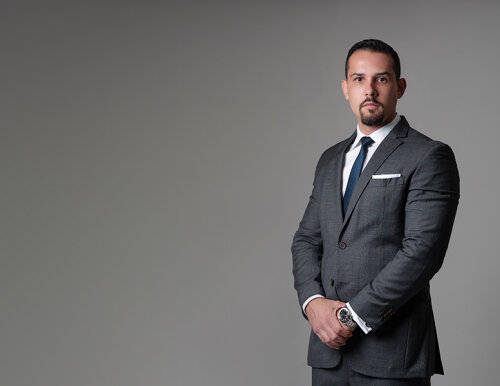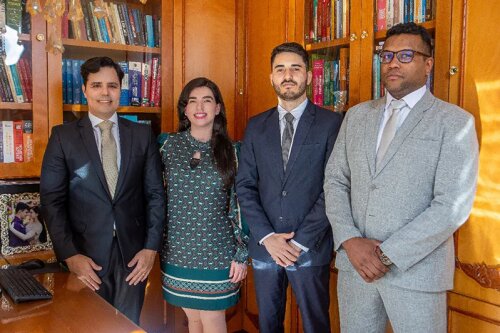Best Will & Testament Lawyers in Brazil
Share your needs with us, get contacted by law firms.
Free. Takes 2 min.
Or refine your search by selecting a city:
List of the best lawyers in Brazil
About Will & Testament Law in Brazil
The legal framework governing wills and testaments in Brazil is derived primarily from the Brazilian Civil Code, which establishes guidelines for how individuals can dispose of their assets upon death. In Brazil, individuals can create a will to ensure their assets are distributed according to their wishes. Brazilian law recognizes several types of wills, including public, closed, and holographic wills. The country also employs a concept known as "legitimate share," which guarantees heirs a portion of the estate, limiting the testator's freedom to allocate their estate entirely as they wish.
Why You May Need a Lawyer
There are several scenarios where consulting a lawyer is advisable:
- Drafting a Will: Ensuring that the will complies with Brazilian legal requirements.
- Complex Estates: Managing estates with investments, businesses, or properties in multiple jurisdictions.
- Family Disputes: Resolving potential conflicts among heirs or challenging an existing will.
- Inheritance Law: Understanding how "legitimate share" rules may affect distribution.
- Tax Considerations: Addressing tax implications associated with inheritance.
Local Laws Overview
In Brazil, the rights of heirs are protected by the principle of "legitimate share," which mandates that certain relatives are entitled to a portion of the estate. The legitimate share typically includes the spouse, descendants, and ascendants. Additionally, wills can be public, closed, or holographic, each with specific formalities.
In public wills, the will is made before a notary public and two witnesses, making them more difficult to contest. Closed wills allow for more privacy but require adherence to stricter formalities. Holographic wills are handwritten by the testator but are often scrutinized more closely by courts due to their informality.
Frequently Asked Questions
What is a legitimate share?
Legitimate share is the portion of an estate that Brazilian law reserves for certain heirs, such as spouses and descendants.
Can I disinherit an heir?
Disinheriting an heir is possible but must be justified by legal causes specified in the Civil Code, such as serious offenses committed by the heir against the testator.
What are the formal requirements for a valid will?
Depending on the type, a will must be executed in line with legal formalities, often involving witnesses and a notary. Each type of will has specific requirements.
Can a foreigner make a will in Brazil?
Yes, a foreigner can draft a will in Brazil, but it must comply with Brazilian legal requirements.
How can a will be contested?
A will can be contested in court if there is reasonable doubt about its validity, such as fraud, duress, or mental incapacity of the testator.
What happens if there is no will?
In the absence of a will, the estate is distributed according to intestacy laws, giving priority to legally recognized heirs.
Are digital wills recognized in Brazil?
As of now, digital wills are not formally recognized under Brazilian law; traditional formats are required.
How can I update my will?
You can update your will by executing a new one that revokes previous versions or by adding codicils for minor amendments.
Is probate required in Brazil?
Yes, probate is generally required to transfer the deceased's assets to heirs in Brazil.
How long does probate take in Brazil?
Probate duration varies but can take several months to years, depending on the complexity and any disputes involved.
Additional Resources
For further information, you can consult the following:
- Local notaries for public wills.
- Bar associations in Brazil offer resources and guidance.
- The official government portal for updates on inheritance laws.
Next Steps
If you require legal assistance with a will or testament in Brazil, consider taking the following actions:
- Consult with an attorney specializing in estate law.
- Prepare necessary documents and information regarding your assets.
- Discuss your intentions and concerns with family members to prevent future disputes.
- Make arrangements for updating the will as life circumstances change.
Lawzana helps you find the best lawyers and law firms in Brazil through a curated and pre-screened list of qualified legal professionals. Our platform offers rankings and detailed profiles of attorneys and law firms, allowing you to compare based on practice areas, including Will & Testament, experience, and client feedback.
Each profile includes a description of the firm's areas of practice, client reviews, team members and partners, year of establishment, spoken languages, office locations, contact information, social media presence, and any published articles or resources. Most firms on our platform speak English and are experienced in both local and international legal matters.
Get a quote from top-rated law firms in Brazil — quickly, securely, and without unnecessary hassle.
Disclaimer:
The information provided on this page is for general informational purposes only and does not constitute legal advice. While we strive to ensure the accuracy and relevance of the content, legal information may change over time, and interpretations of the law can vary. You should always consult with a qualified legal professional for advice specific to your situation.
We disclaim all liability for actions taken or not taken based on the content of this page. If you believe any information is incorrect or outdated, please contact us, and we will review and update it where appropriate.
Browse will & testament law firms by city in Brazil
Refine your search by selecting a city.

















